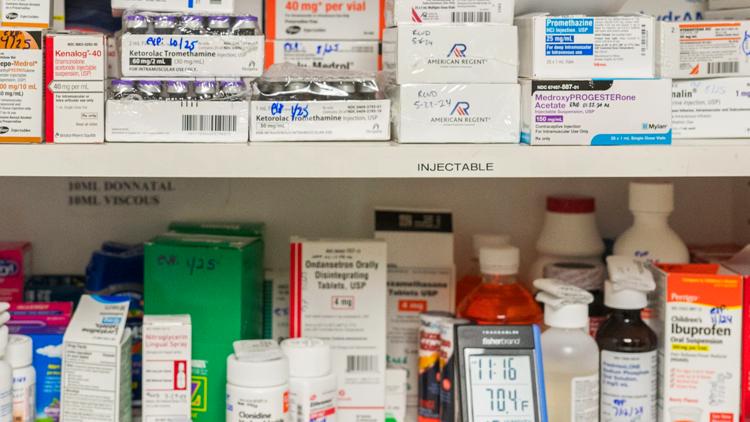How Extreme Heat Can Impact Your Medications

In the midst of soaring temperatures, it’s important to pay attention to how the heat can affect your medications. Experts recommend checking the side effects and storage requirements for your prescriptions and consulting with a pharmacist or doctor if needed.
Common Issues with Heat and Medications
Extreme heat can not only increase the risk of heat-related illnesses but also amplify the side effects of many common medications. Hot weather can damage medicines like insulin that require refrigeration, cause inhalers to explode, and lead to malfunctioning of epinephrine injectors such as EpiPens. Additionally, medications delivered by mail can deteriorate due to high temperatures.
Which Medications are Vulnerable?
Several types of medications can cause problems when exposed to heat. Blood pressure pills, beta blockers, antidepressants, and over-the-counter pain relievers can all have adverse effects in high temperatures. It’s important to be aware of how your medications may impact your body’s response to heat and stay hydrated accordingly.
Proper Storage for Travel
If you’re traveling during the summer, make sure to check the storage requirements of your medications beforehand. Carry medicines in a cooler when traveling by car, even if they don’t require refrigeration, as the interior of a hot car can affect their effectiveness. When flying, always keep medications in your carry-on bag to prevent potential damage from extreme temperatures in the cargo hold.
Mail-Order Medications
Mail-order pharmacies are responsible for ensuring the safe storage and transit of your medications. However, if you suspect that your mail-order medication has been damaged by heat, contact the pharmacy immediately to report the issue. It’s crucial to prevent medications from being exposed to extreme temperatures, especially during delivery.
The Need for Further Research
While there are concerns about the impact of heat on medications, more research is needed to determine the specific risks and develop appropriate guidelines. As climate change continues to accelerate, understanding which medications are most vulnerable to heat is essential for ensuring patient safety.
By being proactive and informed about how heat can affect your medications, you can better protect your health during the summer months. Remember to stay hydrated, keep medications stored properly, and seek guidance from healthcare professionals when needed.




